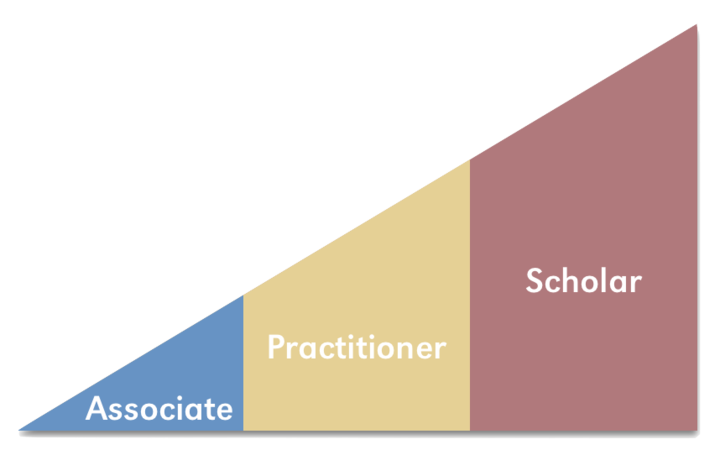Content
The Center for the Integration of Research, Teaching and Learning (CIRTL) is a network of research universities across the U.S. and Canada. The University of Nebraska has been a member of CIRTL since February 2016. The CIRTL mission is to develop future faculty committed to implementing and advancing evidence-based teaching practices to enrich undergraduate education that is accessible to all learners.
Core Values
Core Ideas
Three ideas are the foundation of all CIRTL activities:
Core Idea 1: the deliberate, systematic, and reflective use of research methods by instructors to develop and implement teaching practices that advance learning experiences and outcomes of both students and teachers.
Core Idea 2: learning communities bring together groups of people for shared learning, discovery, and generation of knowledge. To achieve common learning goals, a learning community nurtures functional relationships among its members.
Core Idea 3: actively incorporating the rich array of experiences, backgrounds, and skills among undergraduates and instructors which enhance the learning of all.
Graduate students, postdoctoral scholars, and faculty members are encouraged to participate in CIRTL activities, both on the University of Nebraska campus and offered online by CIRTL network partner institutions, to achieve learning outcomes with increasing levels of engagement.
Learning Outcomes
There are three levels of certification that graduate students and postdoc scholars can achieve in CIRTL@Nebraska:
Associate (see requirements)
A CIRTL Associate can describe and recognize the value of the CIRTL Core Ideas in faculty preparation. Participation at this level is generally limited to participating in workshop, seminars, and classes to learn about existing knowledge in teaching and learning issues, in a discipline or more broadly.
Practitioner (see requirements)
Practitioners exercise the knowledge they gained at the Associate level. They understand how to develop and implement a Teaching-as-Research plan for a teaching and learning project, and participate in learning communities.
Scholar (see requirements)
By engaging at the Practitioner level, Scholars add to community knowledge about teaching and learning and disseminate their findings at a local, national, or international venue.
